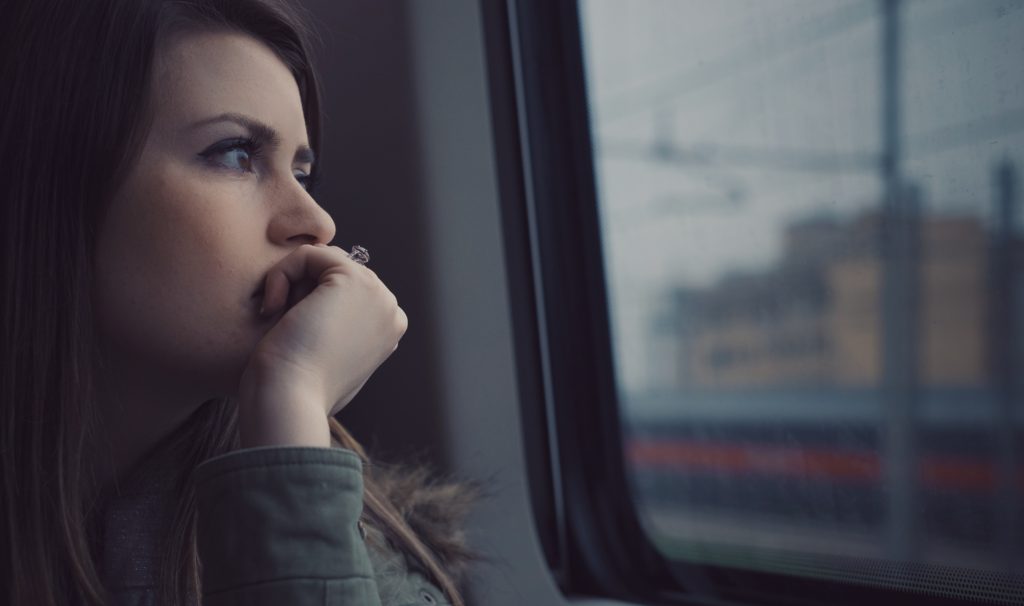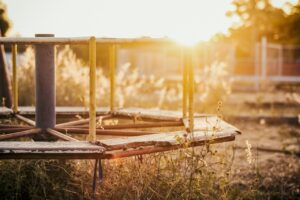Deciding to leave an abusive relationship is one of the hardest things an abuse victim will do. In fact, research indicates that, on average, a victim leaves seven times before staying away for good (Source: The National Domestic Violence Hotline).
This is why it is so important for those outside the relationship to refrain from judgment or misguided assumptions. Unless you have walked in that person’s shoes, you have no idea what she has endured. And, if what she has endured is abuse behind closed doors, leaving—and leaving for good—is a lot more complicated than it may seem.
In my post The Question Never to Ask a Victim of Domestic Violence, there is a list detailing the many, many reasons a victim stays in an abusive relationship. However, I have found that it only takes one good reason to leave.
REASONS A VICTIM MAY LEAVE AN ABUSIVE RELATIONSHIP
- She believes the next abusive incident could be fatal.
- Her abusive partner is either sexually or physically abusing her children.
- The children may be abusing her, and she realizes she needs to remove them from the abusive situation because they are mimicking the abuser’s behavior.
- She has been informed of available help via internet, radio, TV, church, etc.
- She has been encouraged by others who have left.
- A friend, family member, counselor, or church leader has given her the support she needs.
- She is learning to truly love herself.
I’d like to focus on two of these reasons: violence in the home and the victim learning to love herself.
First, violence in the home affects everyone, even if the abuse is directed primarily at the intimate partner. The idea that children are unaware of what is going on is simply not true. Kids are smart. They are very aware of their environment and how safe or unsafe they feel. When the victim is “walking on eggshells,” so are the children.
Children are absolutely affected when their childhoods are riddled with exposure to domestic violence. The PTSD they may develop can go misdiagnosed and untreated for years, leading to further complications and problems in the teen years as well as into adulthood. Recognizing this fact is crucial in getting the children proper counseling and support once a victim leaves.
Secondly, I want to bring awareness to the role that love plays. What I have come to understand is that love can get you in, and love can get you out. Learning how to love yourself in a truly healthy way is the key to breaking free.
In The Question Never to Ask a Victim of Domestic Violence, I listed that one reason a victim may stay in an abusive relationship is because they still love their intimate partner. Abusers don’t come with a sign stating, “I’m going to hurt you, scare you, and hopefully break you, so you will be too weak to leave me.” Instead, most abusers are initially charming, and appear kind, caring, and attractive in so many ways. Once the soon-to-be victim falls in love—and the abuser is convinced of her loyalty and commitment—the tables turn.
True love does not abuse its Beloved. Love protects. Love is kind. Love is safe. Love is the direct antithesis of abuse. Abuse of any kind is void of love. If someone says they “love you,” yet they use fear, power, control, manipulation, jealousy, etc., towards you, they don’t truly love you. The reality, however, is that unless you choose to love yourself, then accepting a twisted, diluted type of love will be your standard.
Loving yourself begins with accepting that you did not cause your partner to abuse you. Simply put: you are not to blame. We all get angry, but we don’t all abuse. Abuse is the choice of the abuser. The responsibility for it lies exclusively at the feet of the abuser. You, however, can make the decision to say, “Enough!” You can begin to raise the bar in your life where zero tolerance for abuse becomes your standard. Raising the bar in this manner will require the support of a healthy community. Connecting with a counselor who understands the complexity of abusive relationships will provide you with the tools, education, and ongoing support you will need to heal. We do not heal well in isolation, we heal well in community. Likewise, getting involved in a support group for abuse survivors will reinforce what you are learning from your counselor. Because abusers often isolate their victims and reinforce secrecy, when you choose to connect with community, it is a clear indication you are learning to love yourself in a healthier way.
If you’re reading this, and you resonate with what I have written, please hear me say that it’s never too late to raise the bar in your life. And, it’s never too late to come alongside a confused, scared, and/or broken person who’s struggling with the decision of whether or not to leave an abusive relationship.
Today, you can choose to raise your bar.
Today, you can choose you!
To help you with this, our Healing Well & Living Free Foundation team has created a Resources page that contains pertinent domestic abuse information, safety plans, hotlines, and recommended reading, including my new book, Healing Well and Living Free from an Abusive Relationship. I encourage you to take this next step and get the resources you need to help yourself, or another, heal well and live free.



